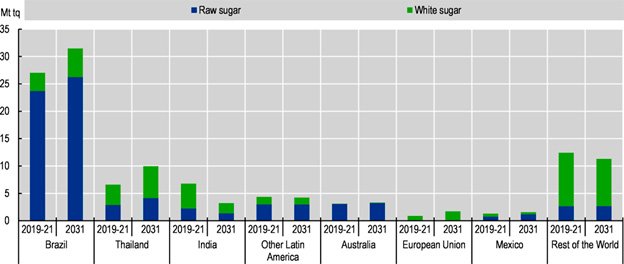
Services

Agro-Commodities Trade
Agricultural commodities are an essential part of the global economy, with a wide range of products, including crops, livestock, dairy products, and more. Supermax Distributor agro-commodities trading is focused in Sugar, Soybeans, Wheat and Some milk products. It requires a good understanding of the market and the factors that influence prices. Whether you are a farmer looking to sell your crops or a beginner looking for opportunities in the agricultural sector, we can help understanding the basics.
Agricultural Commodities
Agricultural commodities are raw or primary products that are derived from agriculture and livestock farming. Some of the most common agri- commodities include sugar, wheat, corn, soybeans, coffee, cotton, and more.
Before you start trading in agricultural commodities, it is important to have a clear understanding of the market and the factors that influence commodity prices. Some of the key factors that influence commodity prices include weather conditions, crop yields, political and economic conditions, and the supply and demand for the commodity.
Another important aspect of agri-commodity trading is the use of futures contracts. Futures contracts are legally binding agreements to buy or sell a specific commodity at a predetermined price on a specific date in the future. These contracts allow traders to take advantage of price changes in the market without having to physically own the underlying commodity.
World Sugar Market and Trade
Global sugar production is approximately 180 million tonnes. World production is dominated by India and followed by Brazil, the European Union and Thailand. Cane sugar production accounts for the majority of world production (about 80%) and is concentrated in Asia and South/Central America. World beet sugar production continues to be dominated by the EU followed by Russia and the United States.
In the 2021/22 season, the world produced 179 million metric tonnes of sugar, over 5 million tonnes more than the previous season; of this volume 137 million came from the top 10 producers, which we are sharing with you. The countries on this list may switch positions from year to year but most of them have cemented their place in the top 10 for more than five years now.
Sugar trading continues to be influenced by shifting weather conditions, currency fluctuations and legislation by the major sugar producers. Here we rank the biggest sugar producers in the 2021/22 crop year and share leading sugar market analysis.
Top 8 World Sugar Exporters (Million Metric Tonnes)

Raw and white sugar exports for major countries and regions
The WTO, Agriculture and Sugar Trade
The World Trade Organization (WTO) is an international organization that negotiates and enforces the rules of trade between member nations. The purpose of the WTO is to enforce current trade rules to provide importers and exporters with a predictable trade environment and to negotiate agreements with member countries to further liberalize global trade in goods and services. The WTO has 164 member countries, accounting for more than 96% of world trade. Decisions are made by the entire membership, typically by consensus.
WTO members recognize the need to reform world agriculture policies which continue to be distorted by subsidies and high trade barriers. In 1995, the WTO Uruguay Round produced the first multilateral agreement that included the agricultural sector. This started the process of binding and cutting tariffs, removing import bans and restrictions and cutting domestic and export subsidies.
In November 2001, in Doha, Qatar, WTO member governments agreed to launch new negotiations towards major reform of the international trading system. The agriculture trade reform process was already underway and became a formal part of the WTO Doha negotiations. Unfortunately, negotiations stalled in 2008 and little progress has since been achieved in reducing global distortions in agriculture, including sugar trade.
- Agro-Commodities Trade
- Wholesale Services
- Distribution Services
- Products Commercialization
